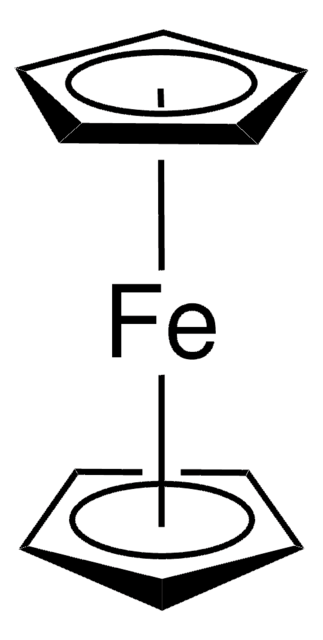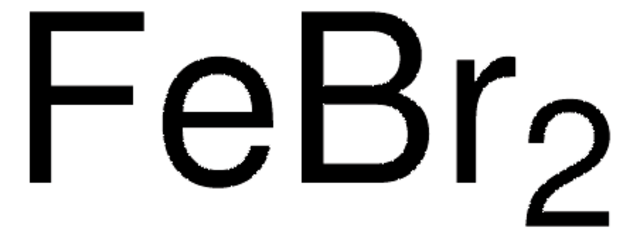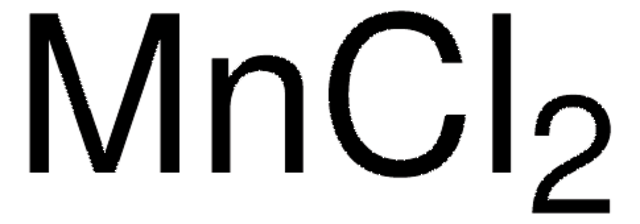450936
Iron(II) chloride
AnhydroBeads™, −10 mesh, 99.99% trace metals basis
Synonyme(s) :
Ferrous chloride, Iron dichloride
About This Item
Produits recommandés
Gamme de produits
AnhydroBeads™
Niveau de qualité
Essai
99.99% trace metals basis
Impuretés
≤150.0 ppm Trace Metal Analysis
Taille des particules
−10 mesh
Pf
677 °C (lit.)
Densité
3.16 g/mL at 25 °C (lit.)
Application(s)
battery manufacturing
Chaîne SMILES
Cl[Fe]Cl
InChI
1S/2ClH.Fe/h2*1H;/q;;+2/p-2
Clé InChI
NMCUIPGRVMDVDB-UHFFFAOYSA-L
Vous recherchez des produits similaires ? Visite Guide de comparaison des produits
Description générale
Application
- A doping agent in the fabrication of mixed organic-inorganic perovskite for high-efficiency perovskite solar cells. The incorporation of iron(II) chloride improve the overall efficiency of the solar cell.
- A precursor for synthesizing various iron(II) coordination complexes. These complexes are significant due to their unique optical and electronic properties, which are essential for various applications, including solar energy conversion and catalysis.
- As a precursor in the synthesis of iron-nitrogen-carbon (Fe–N–C) catalysts for proton exchange membrane fuel cells.
Informations légales
Vous ne trouvez pas le bon produit ?
Essayez notre Outil de sélection de produits.
À utiliser avec
Mention d'avertissement
Danger
Mentions de danger
Conseils de prudence
Classification des risques
Acute Tox. 4 Oral - Eye Dam. 1
Code de la classe de stockage
8B - Non-combustible corrosive hazardous materials
Classe de danger pour l'eau (WGK)
WGK 1
Point d'éclair (°F)
does not flash
Point d'éclair (°C)
does not flash
Équipement de protection individuelle
Eyeshields, Faceshields, Gloves, type P3 (EN 143) respirator cartridges
Faites votre choix parmi les versions les plus récentes :
Déjà en possession de ce produit ?
Retrouvez la documentation relative aux produits que vous avez récemment achetés dans la Bibliothèque de documents.
Les clients ont également consulté
Articles
Plasmonic nanoparticles have unique optical properties that can be tailored to suit a variety of applications in the biotechnology1–8 and electronics9–16 industries.
Notre équipe de scientifiques dispose d'une expérience dans tous les secteurs de la recherche, notamment en sciences de la vie, science des matériaux, synthèse chimique, chromatographie, analyse et dans de nombreux autres domaines..
Contacter notre Service technique










